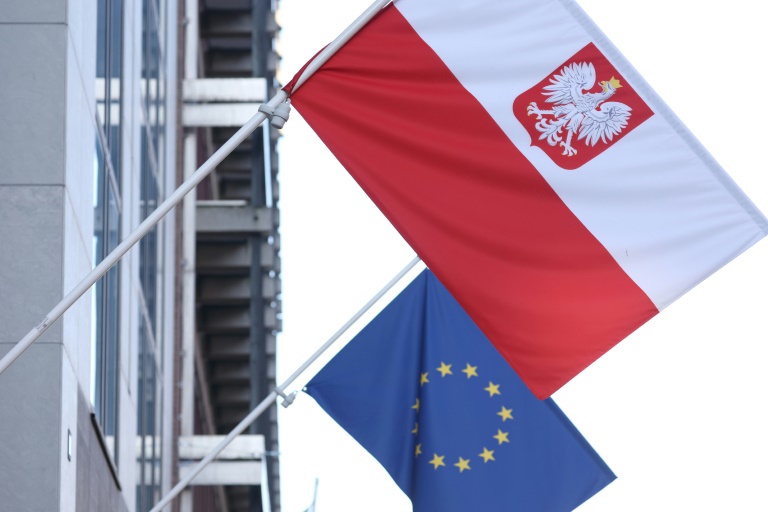Poland’s government on Friday insisted it wanted the country to stay in the European Union as it faced a growing backlash against a court ruling that analysts said could lead to “Polexit”.
German Foreign Minister Heiko Maas said Poland must “fully and completely” implement EU law, while France’s Europe Minister Clement Beaune called the ruling an “attack against the EU”.
European Commission President Ursula von der Leyen said she was “deeply concerned” and vowed that the EU would “uphold the founding principles of our Union’s legal order”.
Poland’s Constitutional Court on Thursday challenged the primacy of EU law over Polish law by declaring several articles in the EU treaties “incompatible” with the country’s constitution.
It also warned EU institutions not to “act beyond the scope of their competences” by interfering with reforms of Poland’s judiciary — a major bone of contention with Brussels.
But right-wing Prime Minister Mateusz Morawiecki said that the process of Poland and other Central European countries joining the EU in 2004 was “one of the highlights of the last decades”.
“Poland’s place is and will be in the European family of nations,” he said in a Facebook post after former EU chief and now opposition leader Donald Tusk called for a major rally in Warsaw on Sunday “to defend a European Poland”.
– ‘De-escalation’ –
Before the ruling, the EU had warned that the case could have “consequences” for tens of billions of euros in pandemic recovery grants and cheap loans destined for Poland which have still not received final approval from Brussels.
Alberto Alemanno, a professor of European law at HEC Paris, said he believed that no government would want to be seen as blocking these funds and there would therefore be a “de-escalation”.
Poles are overwhelmingly EU-enthusiastic, with over 80 percent backing membership of the bloc that has given their country billions of euros in subsidies, turbo-charging its development.
But relations have become increasingly strained since the populist Law and Justice (PiS) party came to power.
Morawiecki earlier this year had asked the Constitutional Court to rule on the primacy of EU law following a series of rulings from the bloc’s top court against Poland’s disputed judicial reforms.
The Constitutional Court itself underwent controversial reforms in 2016 designed by the PiS government, leading critics both in Poland and abroad to argue it is stacked with PiS allies.
Opponents of the government lined up to criticise its approach.
Pro-EU freedom icon Lech Walesa, whose trade union activism helped overthrow the Communist regime in 1989, called for new elections in the country to “save the honour of Poland”.
– EU membership ‘really at stake’ –
In his Facebook post, Morawiecki sought to play down the implications of the ruling saying that the principle of the superiority of constitutional law over other sources of law had already been stated by courts in other member states.
“We have the same rights as other countries.
We want these rights to be respected. We are not an uninvited guest in the European Union. And that’s why we don’t agree to be treated as a second-class country,” Morawiecki wrote.
But experts warned that the ruling, which still has to be officially published to have legal force, could be a first step towards Poland one day leaving the bloc.
“The ruling is absolutely inconsistent with European Union law and it should simply be ignored in the judgments of ordinary courts,” said Piotr Bogdanowicz from the University of Warsaw.
“Our membership of the EU is really at stake,” Bogdanowicz told TOKFM radio.
Adam Bodnar, Poland’s former human rights ombudsman, told TOKFM that the ruling constituted Polexit “in all but name”.











